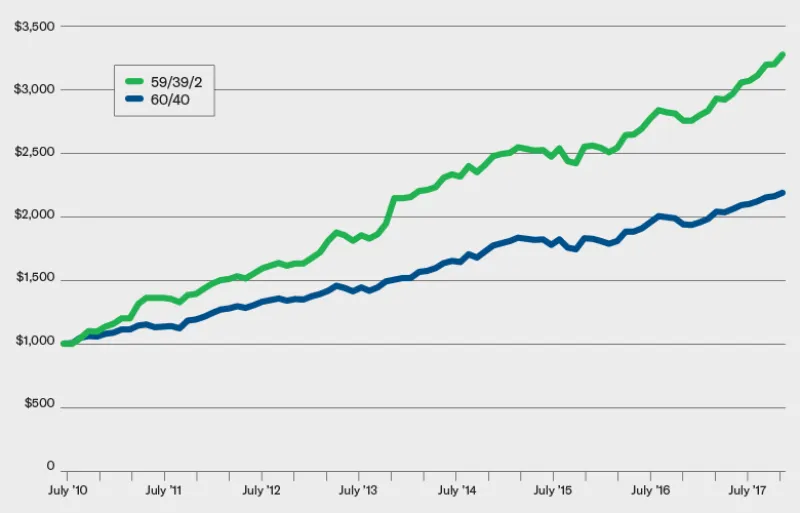
A traditional portfolio of stocks and bonds versus a portfolio with a 2 percent allocation to Bitcoin.
(Source: Jim Liew & Levar Hewlett)

A traditional portfolio of stocks and bonds versus a portfolio with a 2 percent allocation to Bitcoin.
(Source: Jim Liew & Levar Hewlett)